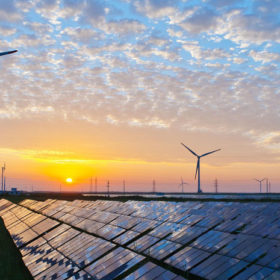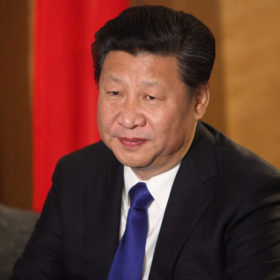McKinsey: EU slated for 44 GW annual PV additions in cost-neutral path to net-zero
Business analysts at McKinsey & Company have worked the numbers and found that investments into new infrastructure and technologies necessary to achieve the net-zero target will likely be offset by savings in other sectors. Europe’s PV sector could grow to about three times its current size over the next decade.
China could drive 4.2 TW of solar capacity by 2050 under decarbonization plan
The solar and wind industries could benefit from a $6.4 trillion boom under the most ambitious of two scenarios described by Bloomberg New Energy Finance, and $2.4 trillion even in the business-as-usual outlook.
The Square Mile goes where Boris Johnson fears to tread
The City of London Corporation signed a £40m solar power purchase agreement on the same day the prime minister outlined a net-zero strategy which failed to even mention solar.
UK enters the solar space race
The government has commissioned a study into the feasibility of generating solar power in space and beaming the energy down to earth now that commercial space launches have changed the rules of the game.
South Korea follows Japan with net-zero 2050 pledge
Re-elected South Korean president Moon Jae-in today declared he will follow-up on a campaign trail promise to eliminate carbon emissions by mid century. The announcement comes just two days after Japan’s new prime minister said he would accelerate his nation’s emissions target.
‘Solar is the new king of energy markets’
The advance of PV has been lauded by the International Energy Agency as it launched the latest edition of a flagship World Energy Outlook 2020 report overshadowed by the Covid-19 crisis and uncertainty over how long the economic recovery could take.
China will need 1.9 TW of solar by 2060 to hit net zero – WoodMac
The bill for full decarbonization of the economy – which is likely to see the decommissioning of no more than half the current coal fleet, with CCS doing some heavy lifting, according to the US-owned analyst – could come in at more than $5 trillion.
Power-to-hydrogen for multi-energy systems
Scientists in Switzerland say power-to-hydrogen is particularly promising for coupling electricity and heating and offsetting seasonal variation in renewables generation in sector-coupled energy networks. Their analysis indicated the technology may be especially useful in areas with a high ratio of seasonal thermal-to-electric demand.
Scottish Power to bring parent’s hydrogen expertise to northern Europe
The U.K. utility is a partner in the Green Hydrogen for Scotland initiative which aims to be fueling commercial vehicles with sustainable hydrogen within two years, starting with a 10 MW electrolyzer on the outskirts of Glasgow.
UK Citizens’ Assembly speaks highly of solar – but is government listening?
Some 81% of the everyday folk asked how the U.K. should realize its net zero 2050 ambition said solar should be part of the mix and views were also aired on electric and hydrogen transport, home heating and how to incentivize companies to embrace a circular manufacturing model.









